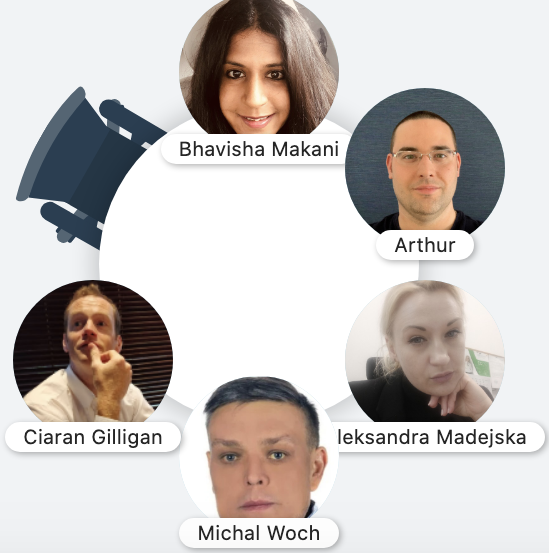Build Social Capital
Event Anywhere Team
Employers are increasingly turning to hybrid work, but it’s not without challenges. This is a relatively new way of working that combines elements of working at home and in an office. While some employers may see the benefits of reduced costs and increased productivity, others may have concerns about how this will affect their company culture and employee engagement levels.
One key concern about hybrid working among many employers has been the potential damage to company culture due to a lack of face-to-face interaction, a Microsoft Index survey showed 43% of leaders found relationship-building to be the biggest challenge they faced.
People are not in the same place so there is no interaction and this can lead to a breakdown in communication and relationships.
Learning how to boost ‘social capital’
Social capital is the ability to build and maintain relationships. It’s a key factor in business success, and its influence on your career trajectory may be more significant than you realize.
In her book The Networked Nonprofit, Robyn Freedman Spizman writes: “The theory of social capital suggests that connections (and therefore relationships) are currency.” She goes on to say that “the people around us form our network” and that “it’s possible for any business or organization to generate enough social capital to succeed.”
Is the tech up to the job?
You have a lot of options when it comes to creating hybrid work environments, but not all of them are created equal. The technology you use has to be able to handle both internal and external collaboration between team members, as well as multiple clients or project partners simultaneously. It also has to be flexible enough that your staff can get their work done without needing specific training from you on how things operate. This is why hybrid solutions like Event Anywhere are popular among businesses: they’re easy-to-use and reliable, which means no one needs special attention paid just so they can get their job done (and get it done well). If your company uses a service like this, then great! You’re already on track with what makes a good hybrid solution—that said, there’s always room for improvement.

At Webanywhere we believe that a company is only as strong as its employees. Event Anywhere allows you to keep everyone in the loop on what you’re working on—no matter where you are.
Every workday at 4:30 pm, employees post a debrief on Event Anywhere summarizing what they worked on today. All screencasts, videos, voice notes or posts are shared with everyone in the company. Everyone’s updates display on a single timeline, grouped by date, so anyone who’s curious about what’s happening across the company can simply listen or watch from the top to bottom. And if you have a question about anything, you can comment on anyone’s debrief to keep the conversation in context.

Hybrid work makes relationship-building difficult
In order to build relationships and gain recognition, you need to know people. You need to be known by them. You also need social capital: connections, influence and reputation that is built on your personal network. The difficulty in hybrid work is that it’s hard to develop both of these things when they are spread across different teams and locations.
The most common solution is to use technology as a substitute for face-to-face interaction, but this can be problematic because it often leads us away from developing strong relationships with our colleagues.
We’ve looked at the potential benefits and pitfalls of hybrid work, and seen how tools like video conferencing can be used to help boost ‘social capital’ in the workplace. But what are your thoughts on the subject? Do you think hybrid work is a good thing, or do you prefer to have all of your employees in one place? Do you think that the advantages of hybrid work outweigh the disadvantages? Do you think that technology can help us to build stronger relationships with colleagues?
Contact Event Anywhere we would be happy to talk further about your hybrid work strategy.